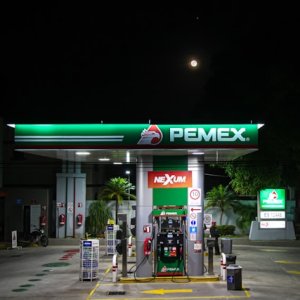
PEMEX Hunts Debt Financing Options Barring Pricy Capital Markets
 By Anmol Motwani | Journalist & Industry Analyst -
Fri, 03/10/2023 - 09:24
By Anmol Motwani | Journalist & Industry Analyst -
Fri, 03/10/2023 - 09:24
In January 2023, PEMEX issued a US$ 2 billion bond with a 10-year maturity to refinance its debt of US$105 billion. However, further moves on capital markets are unlikely, as the NOC’s CEO told Reuters that these environments are “pricy” and that the company has been “punished” by rating agencies.
According to Bloomberg, the government-owned oil giant has been witnessing a decline in oil production for a decade and a half, which partially led to PEMEX becoming the most-indebted oil company in the world. PEMEX has garnered a low credit ranking by Moody's Investor Service, a credit-ranking agency based in the US that downgraded the company rating to B1 or “junk” rating, indicating a relatively high level of credit risk.
Hitting back at the credit rating agencies, Octavio Romero, CEO, PEMEX, told Reuters that these agencies have “punished" PEMEX by declaring its bonds speculative or junk grade despite the company making progress on boosting its production from January to May of 2022. PEMEX reached an average production of 288Mb/d of gasoline, 24.8 percent more year-over-year.
Luis Maizel, Co-Founder, LM Capital, told Reuters that the company's debts have become outrageous even if it decided to no longer issue bonds.
The company is bound to pay almost US$10 billion in bond amortizations this year. However, neither the company nor the government included this amount in their annual budgets. According to PEMEX’s CEO, Octavio Romero Oropeza, between US$5.5 billion and US$6 billion of the total amount is due in the first quarter alone.
Despite an upsurge in oil prices in the latter half of 2022 due to the war between Russia and Ukraine, the company has received financial aid from the government in terms of capital flows, or delay in the payment of the profit-sharing duties, also known as DUC.
Although the government does not intend to reduce PEMEX´s profit-sharing cut this year or the next, S&P Global reported in 2021 that the government carved PEMEX´s profit-sharing duty from 65% to 54%.
Mexico’s Finance Ministry and the government have used various tools to help the NOC strengthen its finances and pay off chunks of its US$105 billion in debt. Gabriel Yorio, the Mexican Deputy Finance Minister, stated in a press conference in January 2023 that the ministry usually utilizes a combination of financial and fiscal tools to support PEMEX.
Regardless of the challenges, the company’s bonds have performed relatively well, as the investors received a return of 6.9% year-to-date. However, future performances may be different as market dynamics can shift quickly.
















